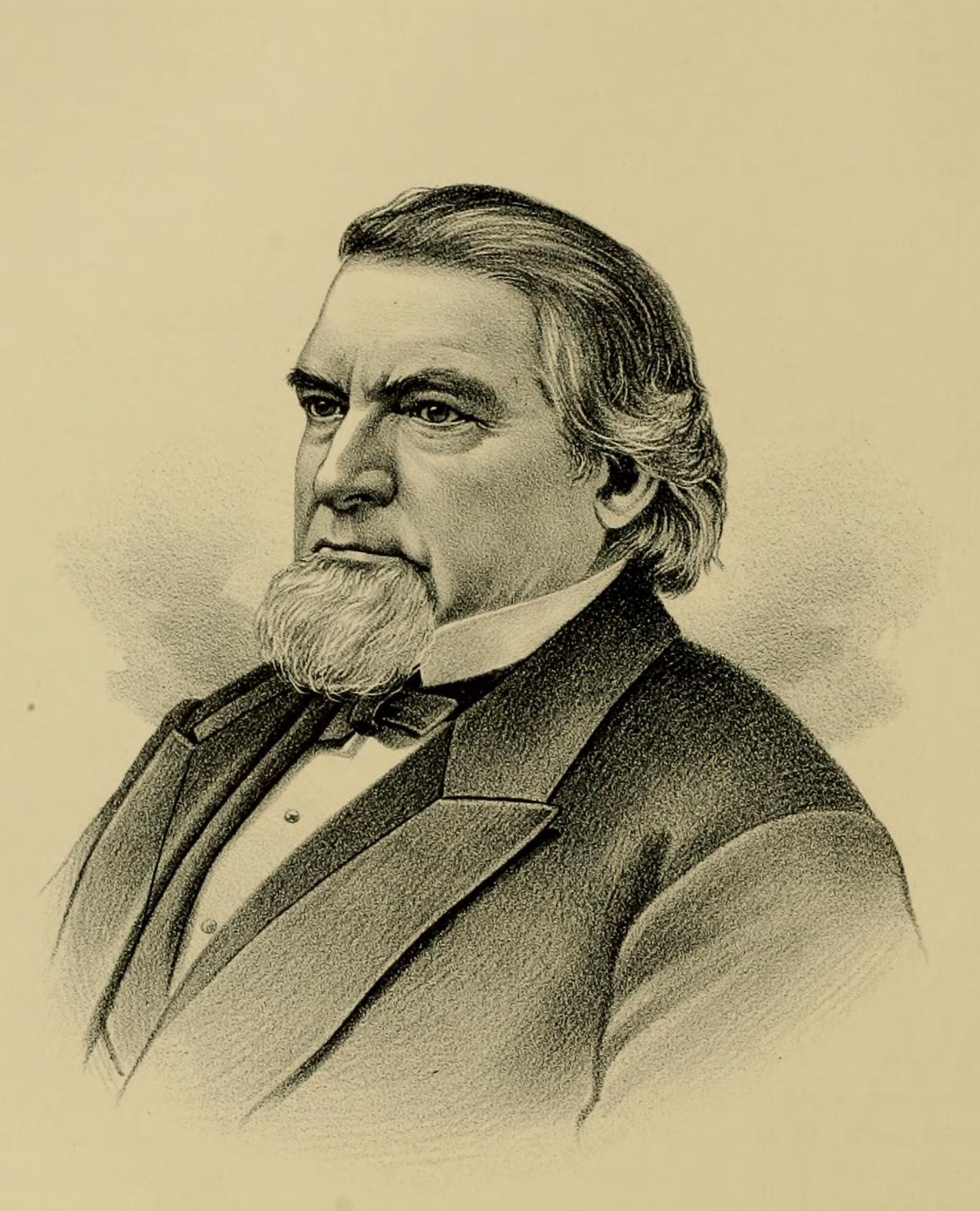Cadwallader C. Washburn
| Cadwallader C. Washburn | |
|---|---|
 |
|
| 11th Governor of Wisconsin | |
|
In office January 1, 1872 – January 5, 1874 |
|
| Lieutenant | Charles D. Parker |
| Preceded by | Lucius Fairchild |
| Succeeded by | William Robert Taylor |
| Member of the U.S. House of Representatives from Wisconsin's 6th district |
|
|
In office March 4, 1867 – March 3, 1871 |
|
| Preceded by | Walter D. McIndoe |
| Succeeded by | Jeremiah McLain Rusk |
| Member of the U.S. House of Representatives from Wisconsin's 2nd district |
|
|
In office March 4, 1855 – March 3, 1861 |
|
| Preceded by | Ben C. Eastman |
| Succeeded by | Luther Hanchett |
| Personal details | |
| Born |
Cadwallader Colden Washburn April 22, 1818 Livermore, Massachusetts (now Livermore, Maine) |
| Died | May 14, 1882 (aged 64) Eureka Springs, Arkansas |
| Resting place | Oak Grove Cemetery, La Crosse, Wisconsin |
| Political party | Republican |
| Spouse(s) | Jeanette Garr |
| Children | Jeanette Garr Washburn Frances Washburn |
| Profession | Politician, lawyer, soldier |
| Religion | Presbyterian |
| Military service | |
| Allegiance |
United States of America Union |
| Service/branch |
United States Army Union Army |
| Years of service | 1862–1865 |
| Rank |
|
| Commands | 2nd Regiment Wisconsin Volunteer Cavalry |
| Battles/wars | American Civil War |
Cadwallader Colden Washburn (April 22, 1818 – May 14, 1882) was an American businessman, politician, and soldier noted for founding what would later become General Mills. He was a U.S. Congressman and governor of Wisconsin.
Washburn was born in Livermore (in modern-day Maine, then a part of Massachusetts), the son of Martha (née Benjamin) and Israel Washburn. He was one of seven brothers, who included Israel Washburn, Jr., Elihu B. Washburne, William D. Washburn, and Charles Ames Washburn. Washburn attended school in Wiscasset, Maine, and later taught there in 1838–1839. In 1839 he moved to Davenport, Iowa where he taught school, worked in a store, and worked as a surveyor. Inspired by his brother Elihu who set up a legal practice in nearby Galena, he studied law, In 1842 he was admitted to the Wisconsin bar and he moved to Mineral Point, Wisconsin where he began a legal practice.
In 1844, Washburn formed a partnership with land agent Cyrus Woodman. Together the two men developed a number of companies, such as the Wisconsin Mining Company. The most successful business venture undertaken by the men was land acquisition. In May 1855 they established Washburn's and Woodman's Mineral Point Bank. Washburn and Woodman dissolved their partnership amicably in 1855.
In 1856, the Minneapolis Mill Company was chartered by the Minnesota territorial legislature. Among the incorporators were Washburn's cousin Dorilus Morrison, and Robert Smith, an Illinois congressman who had acquired the rights to the water power at the west side of St. Anthony Falls in Minneapolis. The company struggled initially, and several of the early investors sold out. Washburn bought in and eventually became president. His brother William moved to Minneapolis about that time, and actively managed the company. The company built a dam, a canal and a complex set of water transfer tunnels which were then leased, along with land that the company owned at the foot of the falls, to a variety of mills — cotton mills, woolen mills, sawmills and grist/flour mills. Eventually the work and investment of the two brothers paid off well, and they used their new-found capital to invest in mills themselves.
...
Wikipedia
